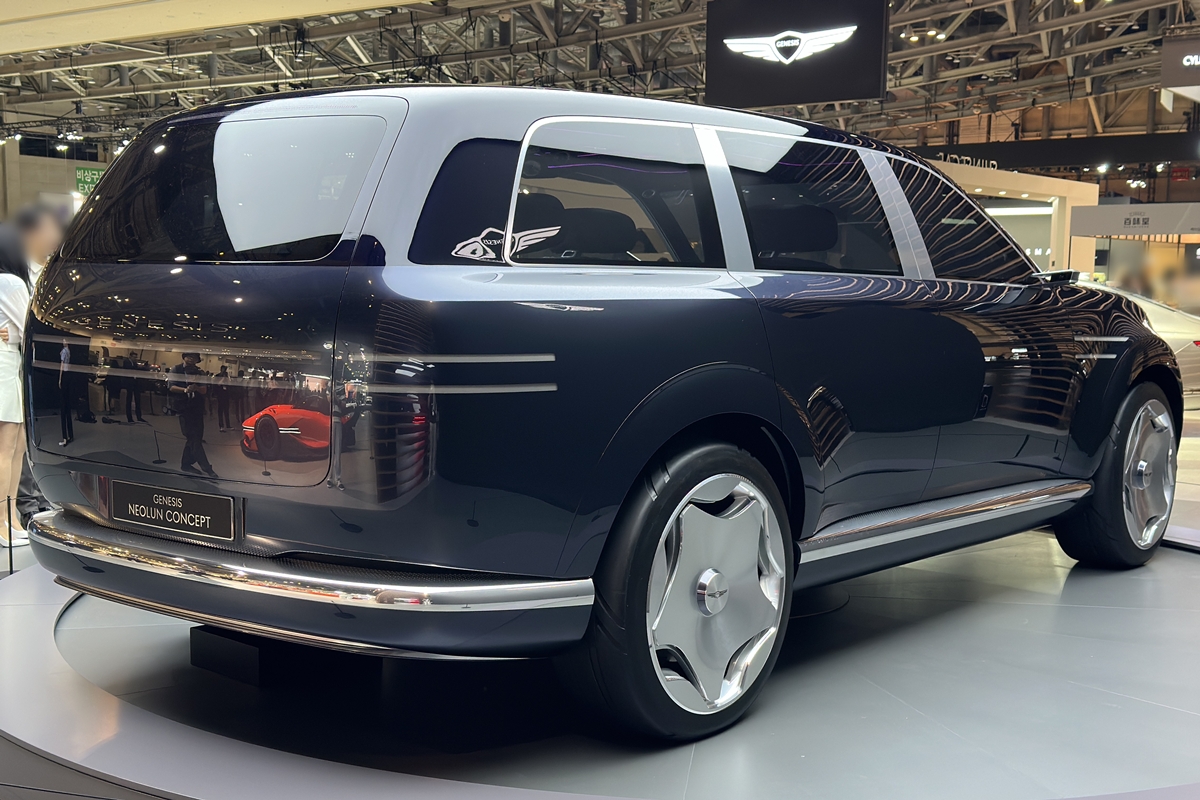
Hyundai Motor Group’s luxury brand, Genesis, is preparing to introduce the GV90, a large premium SUV that will become its flagship vehicle. Initially planned solely as a battery-electric model, the GV90 lineup will now include an Extended-Range Electric Vehicle (EREV) variant—a strategic move reflecting Genesis’s flexible response to evolving consumer demands amid a shifting global electrification landscape.
The GV90 marks Genesis’s first entry into the full-size, F-segment SUV category, positioning it at the pinnacle of its SUV portfolio. This adjustment comes amid temporary stagnation in electric vehicle (EV) demand and aims to offer customers broader choices during this transition phase toward full electrification.

How Genesis’s EREV Technology Works
The EREV system employs a battery-electric powertrain as its primary propulsion source. When battery levels drop during extended driving, an onboard internal combustion engine activates to generate electricity, recharging the battery without directly powering the wheels. As a result, drivers experience smooth, quiet operation similar to pure electric vehicles but with significantly reduced dependence on external charging infrastructure.
According to initial estimates, equipping the GV90 with an EREV powertrain could enable an impressive maximum driving range exceeding 746 miles (around 1,200 kilometers).
Genesis’s recent announcement to incorporate hybrid systems into its redesigned G80 sedan represents a strategic shift. This approach slightly diverges from the brand’s original commitment to launching exclusively electric models from 2025 onward. Industry analysts interpret this adjustment as a realistic response to softer-than-expected EV demand and ongoing infrastructure challenges, helping Genesis retain its premium brand appeal while providing flexible alternatives to meet consumer needs.

EREV Gaining Momentum Globally
Extended-range electric technology is quickly emerging as an attractive alternative globally. Chinese automakers Li Auto, Xiaomi, and Huawei have successfully adopted EREV solutions, while several European and American brands are actively exploring similar technology.
Genesis’s decision to integrate EREV into the GV90 demonstrates the Hyundai Group’s proactive stance in aligning with global market trends and consumer preferences, ensuring they remain competitive during the electrification transition.
Strengthening Genesis’s Premium Market Position
Introducing the GV90 with an EREV powertrain option is expected to impact the Korean domestic market significantly. This new variant offers an attractive alternative to consumers hesitant about purchasing fully electric vehicles, mainly due to concerns around charging infrastructure limitations. By combining the smooth performance and quiet operation associated with EVs alongside the practicality of gasoline-based charging, Genesis hopes to solidify its leadership in the premium SUV segment.
Moreover, EREV systems present tangible benefits, such as lower vehicle weight and reduced battery costs compared to battery-only EVs. Additionally, drivers enjoy electric-like driving dynamics from the electric motors directly powering the wheels.
However, critics point out drawbacks, including increased overall vehicle weight and system complexity from adding an internal combustion generator engine. Furthermore, EREVs still incorporate gasoline engines, so they do not qualify as true zero-emission vehicles.
Despite these limitations, industry insiders widely acknowledge the EREV approach as a “necessary compromise” to bridge the gap during a complex transition to full electrification. Genesis’s strategic adoption of EREV technology in the GV90 highlights the brand’s practical and adaptable response, signaling a forward-thinking commitment to navigating electrification’s evolving landscape.
























